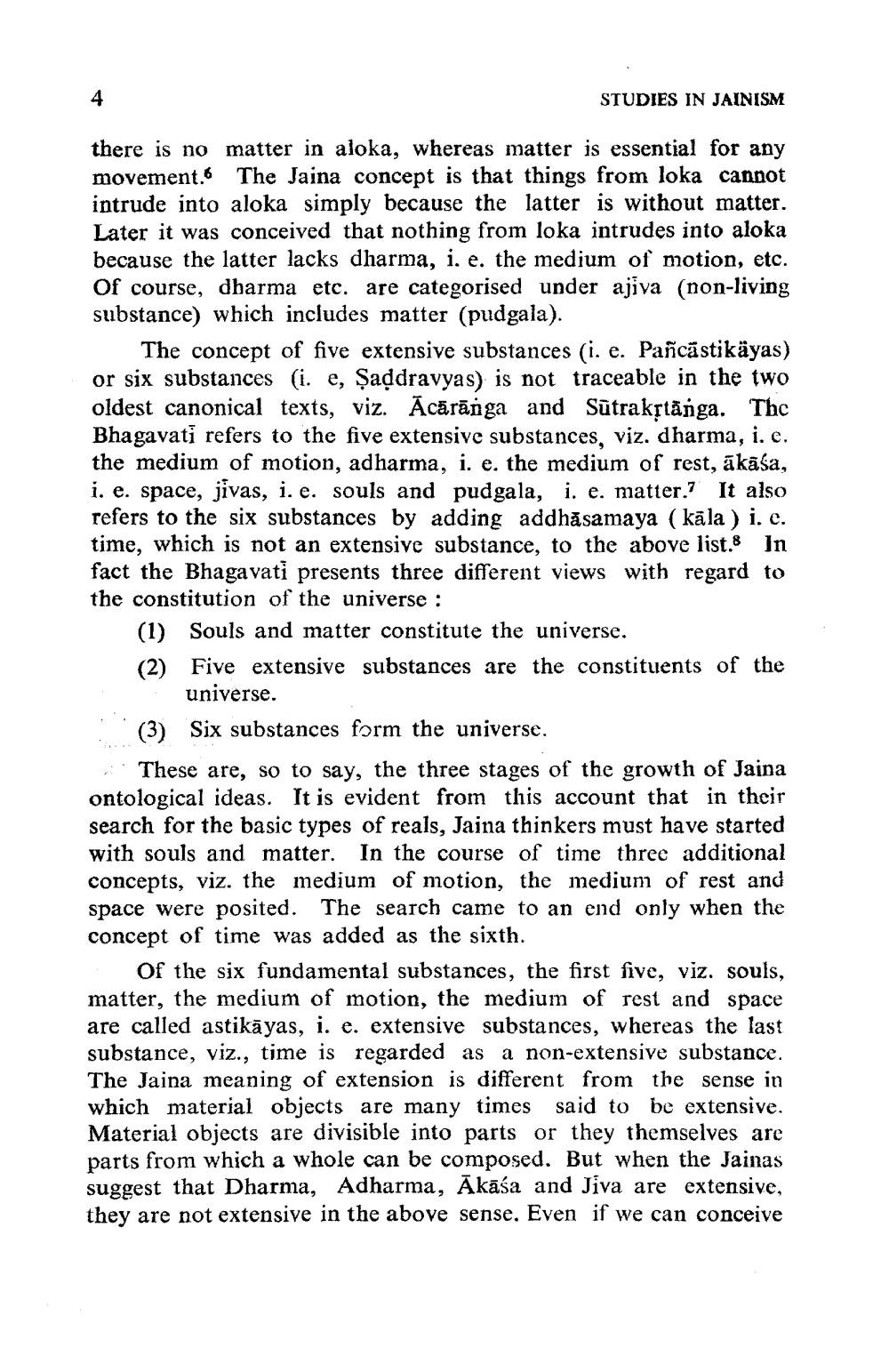________________
4
STUDIES IN JAINISM
there is no matter in aloka, whereas matter is essential for any movement. The Jaina concept is that things from loka cannot intrude into aloka simply because the latter is without matter. Later it was conceived that nothing from loka intrudes into aloka because the latter lacks dharma, i. e. the medium of motion, etc. Of course, dharma etc. are categorised under ajiva (non-living substance) which includes matter (pudgala).
The concept of five extensive substances (i. e. Pañcästikäyas) or six substances (i. e, Şaddravyas) is not traceable in the two oldest canonical texts, viz. Acaranga and Sutrakṛtānga. The Bhagavati refers to the five extensive substances, viz. dharma, i. c. the medium of motion, adharma, i. e. the medium of rest, ākāśa, i. e. space, jivas, i. e. souls and pudgala, i. e. matter. It also refers to the six substances by adding addhasamaya (kāla) i. c. time, which is not an extensive substance, to the above list. In fact the Bhagavati presents three different views with regard to the constitution of the universe :
(1) Souls and matter constitute the universe.
(2) Five extensive substances are the constituents of the universe.
(3) Six substances form the universe.
These are, so to say, the three stages of the growth of Jaina ontological ideas. It is evident from this account that in their search for the basic types of reals, Jaina thinkers must have started with souls and matter. In the course of time three additional concepts, viz. the medium of motion, the medium of rest and space were posited. The search came to an end only when the concept of time was added as the sixth.
Of the six fundamental substances, the first five, viz. souls, matter, the medium of motion, the medium of rest and space are called astikāyas, i. e. extensive substances, whereas the last substance, viz., time is regarded as a non-extensive substance. The Jaina meaning of extension is different from the sense in which material objects are many times said to be extensive. Material objects are divisible into parts or they themselves are parts from which a whole can be composed. But when the Jainas suggest that Dharma, Adharma, Ākāśa and Jiva are extensive, they are not extensive in the above sense. Even if we can conceive




